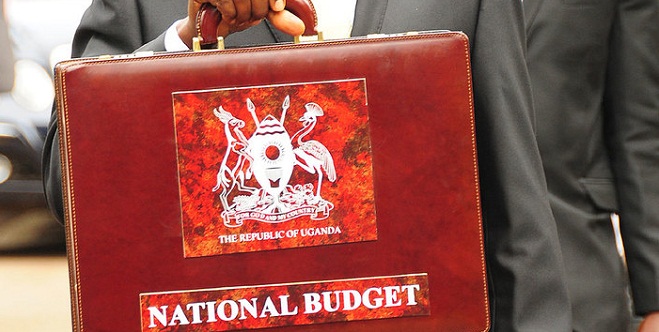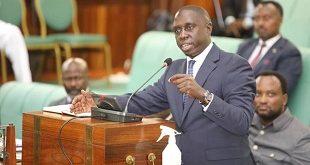
Kampala, Uganda | THE INDEPENDENT | Sh 34.3 trillion is the resource envelope for financial year 2019/2020, up by Sh 2 trillion from the current financial year.
Of the Sh 34.3 trillion, domestic revenue collections are expected to generate Sh 18.3 trillion, according to National Budget Framework Paper.
The economy itself has registered a slight growth from 5.8 to 6.1 per cent in the current financial year, the National Budget Framework Paper for 2019/2020-2023/2024 indicates.
In its report presented last week, the Committee on Budget attributes the increase to activities of the private sector.
“The rebounding of economic growth has been attributed mainly to increased private sector activity, significant growth in the services sector, recovery in agricultural growth from the previous drought,” said MP Amos Lugoloobi, the Committee Chairperson.
The Budget Committee however had several concerns from the past year, including failure to meet the budget in revenue collection and rising debt.
In its main report adopted by Parliament, the Committee recommended a value for money audit on the Uganda Revenue Authority (URA) over a Sh1 trillion revenue shortfall experienced in the current financial year.
Lugoloobi says a decrease in revenue collections affect government’s Medium Term Expenditure Framework.
The Committee also expressed fears about the rising debt, which now stands at 41.3 trillion, which is 41.5 per cent of the Gross Domestic Product.
Projections
On projections for the next Financial Year, the Health budget is reducing from Shs2.3 trillion to Shs2.2 trillion.
Education is equally facing a cut from Shs2.7 trillion from shs2.6 trillion.
Ministry of Works has increased its claim from Shs4.7 trillion to Shs5.3 trillion, maintaining their lead in allocations for development and services delivery.
Treasury operations, which deals with domestic debt refinancing, still takes a total of Shs9.5 trillion, which worried MP Muwanga Muhammad Kivumbi (DP, Butambala), who presented a minority report.
Muwanga said there should be drastic restructuring of government agencies to curb sagging expenditure.
“We recommend the reduction on the size of cabinet, administration centres, size of Parliament, privileges of political leaders among others,” he said.
In 2017, government announced merger of its agencies to improve efficiency and end duplication of roles, although early this year, Prime Minister Ruhakana Rugunda told journalists that the merger will have to wait a little longer.
On Security, which is mainly the budget of the Ministry of Defence and Veteran Affairs, the budget is set to decline from Shs2 trillion to Shs1.9 trillion.
Agriculture is getting an increment from Shs892 billion to Shs919.8 billion.
MP Angeline Osegge (FDC, Soroti) questioned the increment, saying if it is to be meaningful; it has to be about inputs and not expenditure.
“You cannot talk about agriculture without talking about irrigation…so the 3 per cent increase is just to excite us, but what exactly is it going to do?” he said.
Parliament’s budget is to remain at Shs497.8 billion of the current financial year.
Reacting to the projected decrease in the Health budget, MP Betty Bamukwatsa (FDC, Rukungiri) said a National Health Insurance Policy is needed.
“The National Health Insurance should be made a priority in this budget…why is the government not caring about the health of every Ugandan?”.
The Budget Framework Paper gives locus to the National Budget and the Public Finance Management Act requires that it is approved by the 01st of February of the preceding financial year.
It is followed by ministerial policy statements and allocations that set the stage for passing of the Appropriation Act.
Finance State Minister, David Bahati said the decrease in health budget is due to reduction in gratuity and projects completion.
“The reduction on the budget of health is on gratuity, and gratuity is paid after verification…the second is exiting projects; when projects end, allocations decrease,” he said.
*****
SOURCE: Uganda Parliament
 The Independent Uganda: You get the Truth we Pay the Price
The Independent Uganda: You get the Truth we Pay the Price



hoping that the years budjet is going to favour industrialisation and education sector much with special regard to the common man.
Good